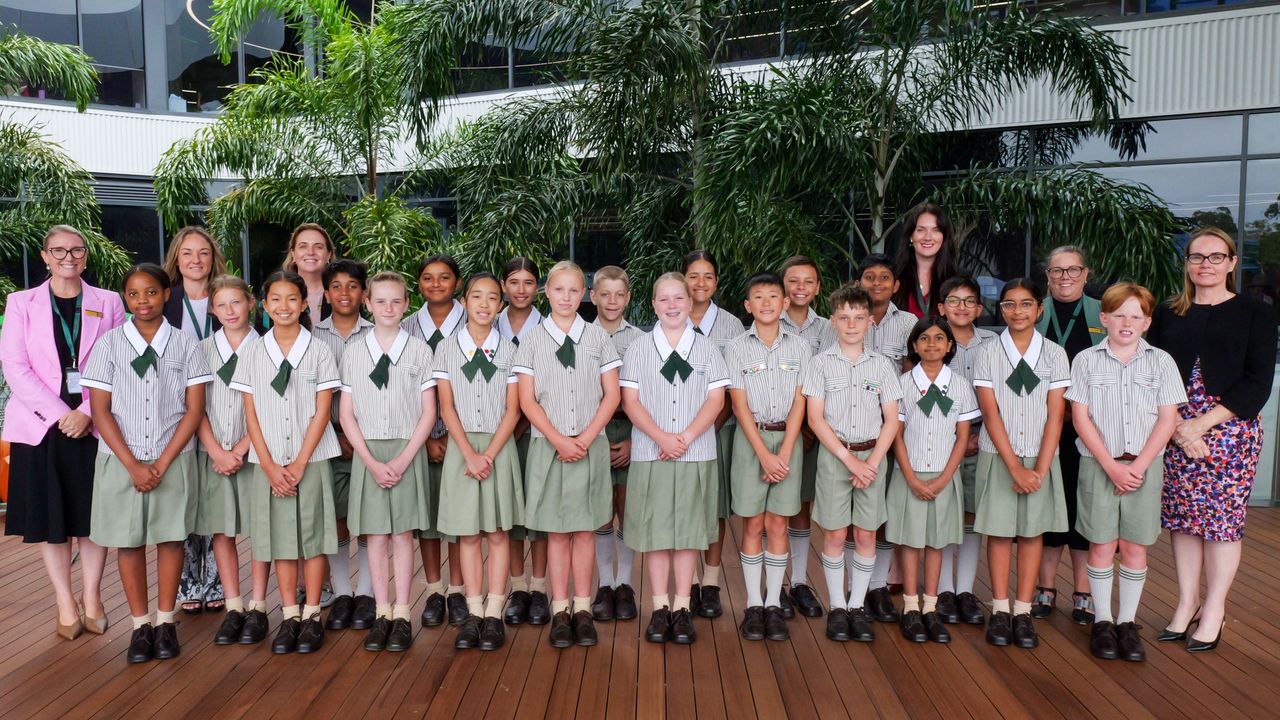Junior School
Welcome to the Junior School at A.B. Paterson College
Our Junior School commences with Prep and continues through to Year 6. There are 28 classes in all, within a truly Prep to Year 12 community. Strong relationships tie all aspects of our College community together and visitors often comment on this caring College spirit. Our classrooms are vibrant places, where students are happy and engaged in quality learning experiences within a contemporary environment.
A.B. Paterson College promotes a holistic approach to education to develop well-rounded and resilient children and young adults. We aim to instil a lifelong love and enjoyment of learning. As part of this approach, we offer a broad range of opportunities for students to develop academically, physically, culturally, socially and spiritually. Our classroom teachers teach across the core curriculum areas. They are joined by numerous specialist teachers, who enable us to offer a wide variety of programs such as Music, Health and Physical Education, Library, Enrichment, Technology and studies in the Japanese language. In addition to this, our students also enjoy a wide variety of co-curricular opportunities in activities such as the STEM Challenge, Public Speaking competitions, musicals, choirs, bands and Running Club.
We prepare our students for their future and 21st Century learning is at the centre of our work. Our students and teachers are equipped with a contemporary range of interactive technologies to engage them in rich learning opportunities across the curriculum.
Good manners and respect for one another are obvious amongst all members of our College. The Junior School community is a friendly, welcoming environment where the home-school partnership is valued. Our teaching staff are dedicated professionals, who actively deal with academic and pastoral issues as soon as they are aware of them. Strong values are modelled by our staff and reflected in the behaviour of our students. Relationships and respect are at the core of our College ethos. Classroom teachers work closely with their students to help develop and nurture our children in a warm and welcoming environment, centred on Australian values.
We would love to welcome you in person to our campus and showcase all of the diverse opportunities we can offer your child or children. Arranging a tour of the College is as easy as telephoning Mrs Karen Milburn on (07) 5594 7947 or emailing her on KMilburn@abpat.qld.edu.au.
We look forward to meeting you and your family!
Prep
Prep students are introduced to sight words and daily reading from Term 1. Children’s prior skill levels are benchmarked through testing so that progress can be monitored. Each child develops through activities that respond to the Australian Curriculum. Specialist Music, Dance, Drama, Health and Physical Education and Japanese teachers work with our Prep students. Each Prep class has one teacher and one full-time learning assistant.
Years 1-3
Students in Years 1-3 have the opportunity to participate in streamed Mathematics groups. For other curriculum areas, such as English, Humanities and Social Sciences, Science, Visual Art, and Technologies, the students work with the class teacher, who is guided by the Australian Curriculum, as well as the Teaching for Understanding pedagogy, to deliver a robust curriculum. The College has developed very specialised and successful programs in Mathematics and English that result in an excellent level of achievement. Specialist Music, Dance, Drama, Health and Physical Education, and Japanese teachers work with the children.
Years 4-6
In Years 4 - 6, students work in needs-based groupings for Mathematics and English. This includes a fifth stream for extension in Mathematics. The curriculum expands from Year 4 to include Instrumental Music (strings and wind) and a broader exploration of Science, Humanities & Social Sciences, and the Arts.
Learning in the Junior School
Personalised Learning
At A.B. Paterson College, our goal is for students to become confident and independent learners, able to meet new challenges, and to do so with resilience, a love of learning and discovery. In order to do this, our students are nurtured by caring teachers, who encourage their students to reflect on their own learning and effort and look for continuous improvement. Our teachers work closely with parents in a learning partnership, intended to provide an outstanding level of care for a happy and growth-promoting climate in which children love to learn.
Academic Programs
Our curriculum is based on the Australian curriculum and includes:
• English
• Mathematics
• Humanities & Social Sciences
• Science
• Technologies
• Language/s
• The Arts
• Health and Physical Education
The Teaching for Understanding framework is used from Prep to Year 6, and thinking routines are incorporated into real-life learning activities to help young people retain their natural curiosity and interest in new ideas.
Digital Technologies
All students in the Junior School have access to various digital technologies to aid their learning. Each classroom in the Junior School has computers connected to our College Intranet and the Internet. In Prep to Year 3, students have access to computers on a daily basis. Students in Years 4 - 6 are supplied with their own devices to use across all aspects of the curriculum. The Teaching and Learning program is enhanced by the use of many online learning platforms from Prep to Year 6.
Student Support
Parents are always welcome to make an appointment with a teacher to discuss their child’s progress. The Student Planner is an important means of communication between the College and home. Parents are asked to check their child’s Student Planner each evening.
2026 Year 6 Leadership Team
A.B. Paterson College acknowledges the Kombumerri People as Traditional Custodians of the land, sea, waterways, and skies in which we learn and play. We also pay our respects to elders, past, present, and emerging, and recognise their continuing connection to country and ways of learning.



